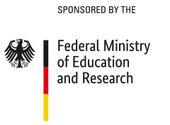The Corona virus pandemic and recent extreme weather situations showed how important coordinated and effective (corporate) crisis management really is. The basis for such a management is flexible, timely and appropriate response to changing (crisis) situations. Continuous adaptation is crucial for this. However, adaptation represents a considerable challenge for the majority of the actors involved. This is where AKRIMA, the Automatic Adaptive Crisis Monitoring and Management System, comes in.
The AKRIMA project aims to strengthen the crisis resilience of critical infrastructures, logistics supply chains as well as authorities and organisations with security tasks through a simulation-based improvement of crisis response mechanisms (CRM). Particularly important is the close cooperation between the various project partners and the target group from the field. The overarching goal of the system is to enable decision-makers to learn from the crisis and previous experiences in order to achieve an improved ability to act in future crises. To this end, extreme crisis scenarios such as pandemics, heavy rain or drought are considered using examples of protective equipment and materials logistics.
With AKRIMA, decision-makers can view the information relevant for crisis monitoring and management in a dashboard. The expected consequences of possible courses of action can be examined and evaluated using AI-based simulation, and crisis response mechanisms can be optimised to improve resilience. This enables an early response in acute crisis situations and logistics failures and supply bottlenecks can be prevented.
Partners
Technische Hochschule Wildau, Aimpulse Intelligent Systems GmbH, G2K Group GmbH


